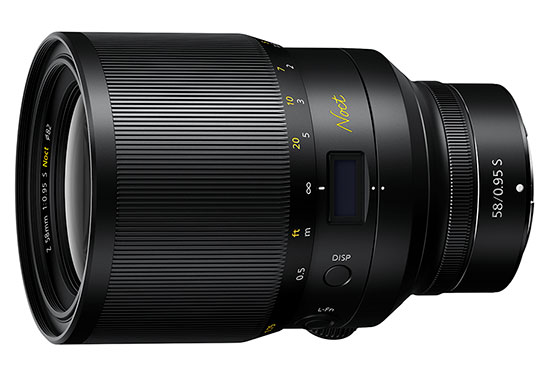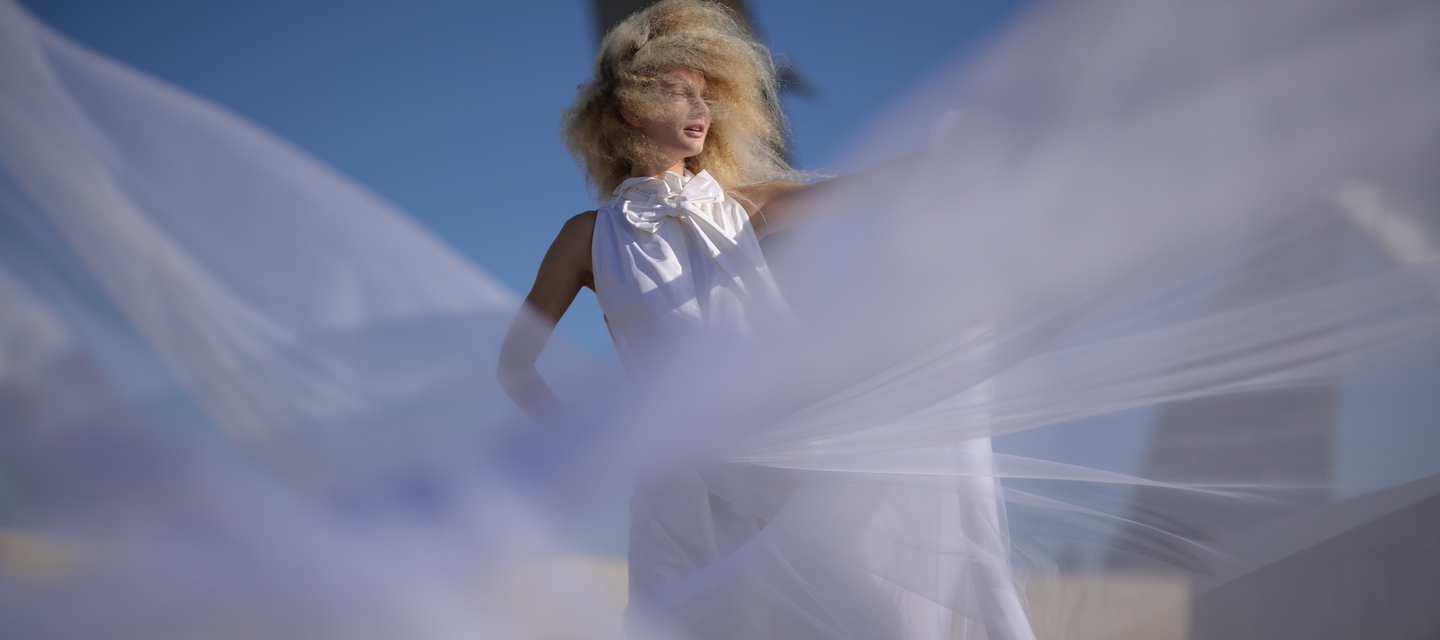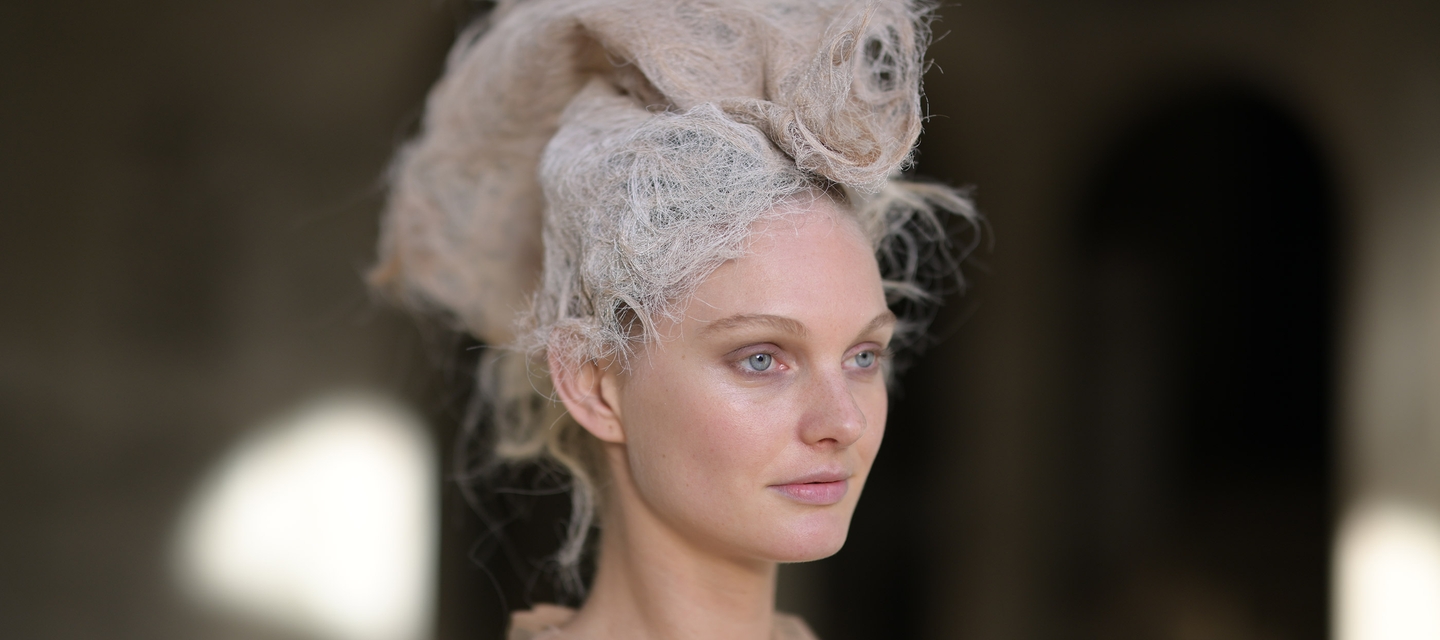The fastest NIKKOR lens ever.
Groundbreaking Performance
Over 100 years of optical know-how and technical innovation have gone into Noct.
Cutting Edge Optical Technologies
Superior optics that can only be NIKKOR.

Technology

ED (Extra-Low Dispersion) Glass
An optical glass developed by Nikon that is used with normal optical glass in telephoto lenses to obtain optimum correction of chromatic aberrations.

Aspherical Lens
A lens with a curved, non-spherical surface. Used to reduce aberrations and enable a more compact lens size. Aspherical lenses minimize coma and other types of lens aberrations, even when used at the widest aperture. They are particularly useful in correcting distortion in wide-angle lenses and help contribute to a lighter, more compact design by reducing the number of standard (spherical) elements necessary. Aspherical lens elements correct these distortions by continuously changing the refractive index from the center of the lens.

ARNEO Coat
An anti-reflective coating developed by Nikon and used in conjunction with Nano Crystal Coat to further reduce ghost and flare effects caused by incident light entering the lens vertically. This allows for the outstandingly clear capture of images even when a light source is located within the frame.

Nano Crystal Coat
An anti-reflective coating developed by Nikon that virtually eliminates internal lens element reflections across a wide range of wavelengths. Nano Crystal Coat solves ghost effects caused by red light and effectively reduces ghost and flare caused by light entering the lens diagonally.

Electromagnetic Diaphragm Mechanism
An electromagnetic diaphragm mechanism in the lens barrel provides highly accurate electronic diaphragm or aperture blade control when using auto exposure during continuous shooting.

Fluorine Coat
Photographers need gear that can withstand the elements. Nikon’s fluorine coat effectively repels dust, water droplets, grease or dirt, ensuring easy removal even when they adhere to the lens surface. Nikon’s fluorine coat endures a high frequency of lens surface wiping and its anti-reflective effect also contributes to the capture of clear images.

Super Integrated Coating
Nikon Super Integrated Coating is Nikon's term for its multilayer coating of the optical elements in NIKKOR lenses.
LCD, Video and Photo Gallery images are for illustrative purposes only
Tech Specs
Focal Length
58mmMaximum Aperture
f/0.95Format
FXNano Crystal Coat
YesApprox. Dimensions (Diameter x Length)
4.01 in.102 mmx6.02 in.153 mmApprox. Weight
70.6 oz.2000 g
- Mount TypeNikon Z Mount
- Focal Length58mm
- Maximum Aperturef/0.95
- Minimum Aperturef/16
- FormatFX
- Maximum Angle of View (DX-format)27°20’
- Maximum Angle of View (FX-format)40°50′
- Maximum Reproduction Ratio0.194x
- Lens Elements17
- Lens Groups10
- Compatible Format(s)FX, DX
- Diaphragm Blades11
- Distance InformationYes
- Arneo CoatYes
- Nano Crystal CoatYes
- ED Glass Elements4
- Fluorine CoatYes
- Aspherical Elements3
- Super Integrated CoatingYes
- Minimum Focus Distance1.64 ft. (0.5m) from focal plane
- Focus ModeManual
- Filter Size82mm
- Accepts Filter TypeScrew-in
- Approx. Dimensions (Diameter x Length)4.01 in.102 mmx6.02 in.153 mm
- Approx. Weight70.6 oz.2000 g
- Lens TypePrime
Support
Product Registration
Registering your Nikon product allows us to send you (with your permission) important updates, service information and helpful hints, and it makes it easier should you ever need to call in for help.
Register your product online now.Nikon Answers Site
We store all resolved problems in our solution database. If you can’t find a relevant answer, feel free to submit a question to our technical support team.
View Questions & Answers


